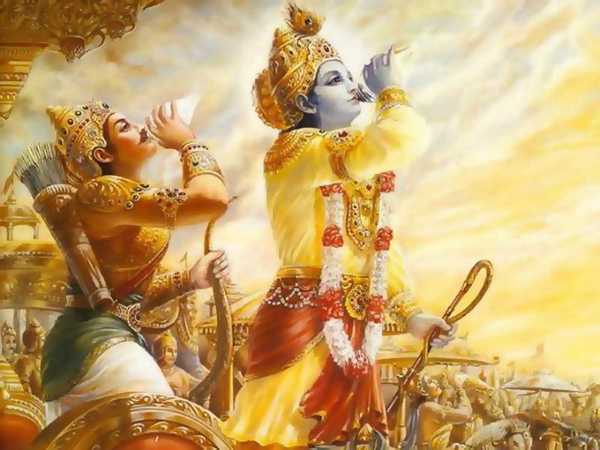Chapter 54

“Vrihadaswa said, ‘O Bharata, hearing those words of the swan, Damayantithenceforth lost all peace of mind on account of Nala. And heavingfrequent sighs she was filled with anxiety, and became melancholy andpale-faced and lean. And with her heart possessed by the god of love, shesoon lost colour, and with her upturned gaze and modes of abstraction,looked like one demented. And she lost all inclination for beds and seatsand object of enjoyment. And she ceased to lie down by day or night,always weeping with exclamation of Oh! and Alas! And beholding her uneasyand fallen into that condition, her hand-maids represented, O king, thematter of her illness unto the ruler of Vidarbha by indirect hints. Andking Bhima, hearing of this from the handmaids of Damayanti, regarded theaffair of his daughter to be serious. And he asked himself, ‘Why is itthat my daughter seemeth to be so ill now?’ And the king, reflecting byhimself that his daughter had attained to puberty, concluded thatDamayanti’s Swayamvara should take place. And the monarch, O exalted one,(invited) all the rulers of the earth, saying, Ye heroes, know thatDamayanti’s Swayamvara is at hand, And all the kings, hearing ofDamayanti’s Swayamvara, came unto Bhima, agreeable to his message,filling the earth with the clatter of their cars, the roar of theirelephants, and the neighing of their horses, and accompanied with theirfine-looking battalions decked in ornaments and graceful garlands. Andthe mighty-armed Bhima paid due reverence unto those illustriousmonarchs. And duly honoured by him they took up their quarters there.’
“And at the juncture, those foremost of celestial Rishis possessed ofgreat splendour, of great wisdom and great vows–namely, Narada andParvata–having arrived in course of their wandering at the regions ofIndra entered the mansion of the lord of the immortals, receiving properworship. And Maghavat having worshipped them reverentially, inquiredafter their undisturbed peace and welfare as regards all respects. AndNarada said, ‘O lord, O divine one, peace attendeth us in every respect.And, O Maghavat, peace attendeth also O exalted one, the kings of thewhole world.’
“Vrihadaswa continued. ‘Hearing the words of Narada the slaver of Valaand Vritra said, ‘Those righteous rulers of the earth who fightrenouncing all desire of life, and who meet death when their time is comeby means of weapons, without flying from the field,–theirs is thisregion, everlasting unto them and granting all desires, even as it is tome. Where be those Kshatriya heroes? I do not see those kings approach(now) Where are my favourite guests?’ Thus addressed by Sakra, Naradareplied, ‘Listen, O Mahavat, why seest not thou the kings (now)? Theruler of the Vidarbhas hath a daughter–the celebrated Damayanti. Inbeauty she transcendeth all the women of the earth. Her Swayamvara, OSakra, will take place shortly. Thither are going all the kings andPrinces from all directions. And all the lords of the earth desire tohave that pearl of the earth,–desire to have her eagerly, O slaver ofVala and Vritra.’ And while they were talking thus, those foremost of theimmortals, the Lokapalas with Agni among them, appeared before the lordof the celestials. And all of them heard the words of Narada fraught withgrave import. And as soon as they heard them, they exclaimed in rapture,We also will go there. And, O mighty monarch, accompanied by theirattendants and mounted on their (respective) vehicles, they set out forthe country of Vidarbhas, whither (had gone) all the kings. And, O son ofKunti, the high-souled king Nala also hearing of that concourse of kings,set out with a cheerful heart, full of Damayanti’s love. And (it came topass) that the gods saw Nala on the way treading on the earth. And hisform owing to its beauty was like that of the god of love himself. Andbeholding him resplendent as the sun, the Lokapalas were filled withastonishment at his wealth of beauty, and abandoned their intention. And,O king, leaving their cars in the sky the dwellers of heaven alightedfrom the welkin and spake unto the ruler of the Nishadhas, saying, ‘Oforemost of monarchs ruling the Nishadhas, O Nala, thou art devoted totruth. Do thou help us. O best of men, be thou our messenger.'”




